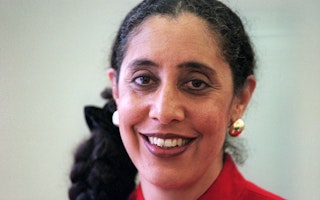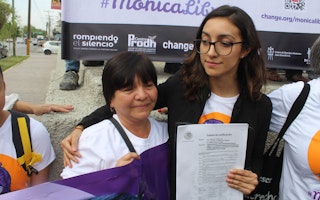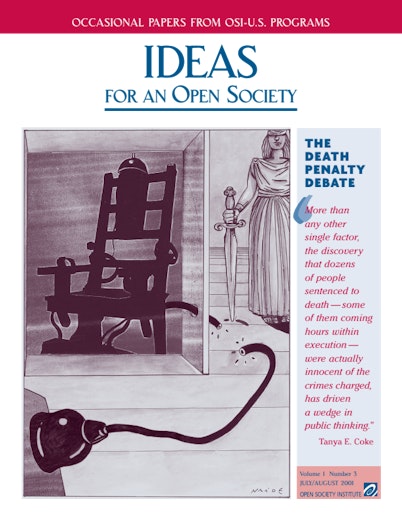With 11 executions planned for August, including the scheduled death of a juvenile offender, increased debate about the fair administration of the death penalty and concern that innocent people may be wrongfully killed have opened the road to reform on an issue once mired in a conflicting set of Biblical imperatives, the Open Society Institute said in the July 2001 issue of Ideas for an Open Society.
"More than any other single factor, the discovery that dozens of people sentenced to death were actually innocent of the crimes charged has driven a wedge in public thinking about the accuracy and fairness of the death penalty," said Tanya Coke, author of the feature article in Ideas for an Open Society and director of OSI's Gideon Project.
"The fact that the death penalty—long a 'no-go' issue in polite conversation—is being discussed around water coolers is a major step forward," added Coke, the former director of the Capital Punishment Project of the NAACP Legal Defense and Education Fund.
In her article, "Reappraising Death: The New Debate over Capital Punishment," Coke says the innocence wedge, conservative criticism, and the realization that the victim community does not uniformly support capital punishment have bolstered the case for abolition, or at least serious reform.
Coke examines the "remarkable shift" in the public and political climate since the early 1990s and says the death penalty has become a "thoroughly non-partisan issue." She says "few social issues have seemed so intractable as the death penalty" and contrasts Bill Clinton's 1992 presidential campaign detour to preside over the execution of Ricky Ray Rector, a lobotomized black man on Arkansas' death row, with last year's moratorium declared by Republican Illinois Governor George Ryan. And, most recently, Justice Sandra Day O'Connor's suggested that lack of good representation, among other things, has rendered the modern experiment with capital punishment deeply flawed.
According to the second article in Ideas, the inherent flaws in the death penalty reflect the criminal justice system's inability to reconcile issues of race and poverty on death row. In his piece, "Breaking Down Walls of Irrationality," Andy Miara of OSI's Communications Department profiles the work of Bryan Stevenson, Director of the Equal Justice Initiative of Alabama, and the organization's role in providing quality representation to people on the state's death row.
With his staff of five attorneys and two fellows, Stevenson represents nearly 100 of the condemned men, women and juveniles currently facing execution in Alabama. Unfortunately, writes Miara, in the 12 years since Stevenson founded EJI, the problems with Alabama's death row have only grown. One hundred eighty-seven people are currently sentenced to die in Alabama—twice the number from 10 years ago—with 300 more awaiting capital murder trials. Last year, Alabama executed more people per capita than any other state.
Stevenson, currently representing a man sentenced to life without parole for stealing a bike, attributes some of the Alabama's criminal justice problems to the lack of a public defender system. In Alabama, the state pays court-appointed lawyers a maximum of $1,000 per case, an amount that attracts mostly inexperienced and under-qualified attorneys.
Stevenson speaks of the human toll these problems exact and recalls meeting with one of EJI's first clients moments before the man's execution.
"I never will forget him saying, 'More people have said what can I do to help you in the last 14 hours of my life than they ever did in the first 19 years of my life.' And holding that man's hands I couldn't help but think, yes, where were they when you were three years old being physically assaulted by your stepfather? Where were they when you were nine, experimenting with heroin and cocaine? Where were they when you were 14, roaming the streets of Birmingham, Alabama, drug addicted with no place to go? I know where they were when you were 19 and you were accused of this offense—they were lining up to execute you."
OSI, part of the Soros Foundations network, releases Ideas six times a year. The Ideas series debates provocative and innovative ideas and strategies for social change to advance democratic, open society values. Written by OSI program directors, trustees, and grantees, upcoming issues will focus on overreliance on incarceration, reform of urban high schools, and other OSI projects. The premier issue of Ideas examined campaign finance reform; the second issue focused on the changing science, politics, and public attitudes on abortion.
Read more
Homicide Reduction
Q&A: How One Colombian City Is Tackling Violent Crime

Palmira, Colombia, is one of the most violent cities in the world. But a prevention program focusing on youth has reduced crime significantly—and earned it an international peace prize. The city’s mayor on what’s working.
In Remembrance
Lani Guinier’s Overlooked Education Legacy

The late Lani Guinier thought deeply about the intersection between education and criminal justice. Her leadership at Open Society helped pave the way to colleges across the country offering higher education to the incarcerated.
WOMEN'S RIGHTS
Challenging Mexico’s Abusive Preventative Detention System

Mónica Esparza’s case is one of the most notorious cases of extreme gender violence carried out by Mexican authorities. What her story teaches about how to combat the country’s scourge of gender-based violence.
